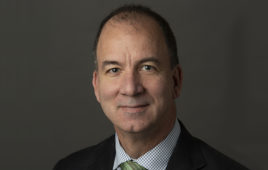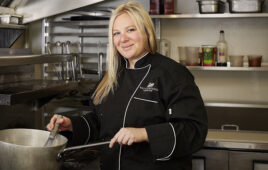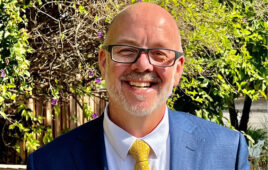Kelly Greens G&CC’s Executive Chef Drew Tait learned that the job must fit the individual as much as the individual must fit the job.
Every September we begin hiring for seasonal positions to work through April (when we slow down again for the summer). Some of our seasonal staff returns year after year while other positions welcome a new associate each season. Having a core team of servers, bartenders, cooks and dishwashers on staff year-round makes it critical that we take our time during the interview process to learn as much as we can about potential new hires.
As club chefs, I think it’s safe to say we all have past hires we thought would be a perfect fit but weren’t. I once had an interview with an older gentleman who had years of experience as a cook. He seemed to have a good personality and I was sure he would be a responsible and valuable addition to our team. He passed his background check and drug screen with no red flags or any concerns from me or HR. But after about a week it was clear that the dynamics of the entire team had changed since he came on board. The staff had split into two groups with this new employee at the center of the dissenting group. This led me to conduct what I call a “hash out” meeting. I brought my whole team into a room and we discussed problems until we found resolutions and were able to move forward. I’ve only had to conduct these kinds of meetings a handful of times over my career and never with my entire team.
At the time, I didn’t realize how toxic one individual could be so I continued to work with this associate, trying to find the best fit for him within our operation. This only resulted in more problems, random OSHA inspections, sabotaged banquet prep and other HR issues. Eventually, this man was terminated along with two other employees who participated with him in the all of the offenses.
The experience was stressful and frustrating, but I realized then the true importance of thoroughly conducting interviews. And I now carry that realization with me.
Here at Kelly Greens G&CC, I have a standard operating procedure for interviewing new associates. I focus on personality far more than skill or experience. Please don’t misunderstand me, experience and skill are important, but I would rather have an associate with a positive attitude who can adapt to change quickly and is willing to take on new challenges.
Below are the steps of my SOP that I use to thoroughly interview new hires:
- Read though each application and resume paying close attention to the details. First, sort applications and resumes into “yes,” “maybe” and “no” piles. Start with the “yes” pile and look for clues that can tell you more about the applicant. Things like did they complete all sections of the application, does the application match what is on the resume, are there gaps in their employment history that needs to be investigated, etc. NEVER EVER write on the application or resume! Once you begin an interview these documents become very important if a potential employee brings up discrimination or other legal action. You do not want any type of notes, observations, etc. on the application or resume that could be used in court so use a separate sheet of paper. I take notes on a cover sheet that has a place for their name, phone number, position, rate of pay and uniform size. Also on this sheet of paper is a check list of documents that need to be completed before I can send them for a background check and drug test.
- Once you have identified the best applicants, begin setting up interviews. Save the “maybe” and “no” applications in case you need to revisit them after going through the “yeses.” Make sure you allow plenty of time for the interviews without being interrupted and make sure you allow enough time between interviews so you don’t have multiple applicants waiting for you. Give the applicants clear instructions on how to get to your club and where to go once they enter the building.
- Once you’ve set dates for the interviews, prepare for their arrival. I make new hire packets that I sort by interview date when I am hiring for a lot of positions. It’s important to stay organized when interviewing multiple people so you can make good decisions. These packets include the aforementioned cover page, a copy of his or her completed application, a packet of interview questions and a culinary knowledge test. The culinary knowledge test is 20 questions and covers the basics like what are the five mother sauces, at what temperature does water boil, at what temperature should you hold cold and hot food, what does nape mean, etc.
- When your first applicant arrives, greet them, shake their hand and look them in the eyes. This action will tell you a lot about a person from the get-go. Invite them to sit down and offer them a beverage. This helps to put them at ease and keeps them comfortable when speaking. I always begin with the kitchen knowledge test where I tell them that I’d like them to complete this test as best they can and that it will not determine if they get the position or not, it just gives me a good idea of where they are at, knowledge wise. I give them 10 minutes to finish the test and then we move onto the actual interview. (View Kelly Greens G&CC’s Culinary Knowledge test here. View the answer key here.)
- Knock out the yes/no questions first. I like to begin the interview by going through position requirements that yield yes or no answers. These include:
- This job requires standing and walking for extended periods of time. Can you stand and walk for extended periods of time?
- This job requires wearing a uniform. Will you wear a uniform?
- This job requires you to work on holidays and weekends. Can you work on holidays and weekends?
- This job often requires extended hours beyond a typical work week (I will explain that during the season we work 6-7 days a week for 12-15 hours a day). Can you do these things?
- Are there days or times you are NOT available to work? (I tell them that if there is anything they regularly do like go to church, attend a child’s sport on Fridays or anything like that to let me know now. If you tell me you have open availability during the interview I expect it to stay that way unless you speak to me.)
These questions are important because they set the tone for the interview and for the potential applicant’s new job. These questions also help if you run into any HR issues after someone is hired because they were made well aware of the position requirements beforehand.
- Begin the main portion of the interview. I use a combination of behavioral questions and standard interview questions to delve into the applicants past performance and personality. It is very important to get detailed answers to questions and I use followup questions and explain different scenarios to dig deeper into answer. If you allow one word answers or general statements, you will not learn about the individual’s actual personality. This can pose a threat to your existing team. Another question I like to ask is what they know about the club and the team. This can be telling as you will be able to see if the individual did any research on you or your club before they came to the interview. If they did, it tells you that this person takes their career and this opportunity seriously. Instead of asking what his or her weaknesses are, I like to ask what three areas of your work performance would you like to improve. This allows me to learn more about what he or she feels are his or her weaknesses are and also gives me a direction to start coaching if we bring this person on board the team. If you dig into their answers correctly, go through their employment history and ask other types of questions, you will have a good idea if this person will be a good fit within your club.
- Solicite team members’ opinions. Once I’ve identified a potential new hire, I invite my sous chef to meet with this person. This allows the applicant to meet his or her other supervisor and gives my sous chef the opportunity to fully vet the potential new employee. My sous chef and I will then discuss the potential new hire. Together we will make a firm decision on what we want to do. (For certain positions, applicants must take a mystery basket cooking test. I usually schedules these for a different day.)
- Show ’em around. After the interview, if it’s gone well, I take the applicant on a quick tour of the facility and walk them to our HR office to complete their back ground check and drug screening.
Remember, any potential new hire can change the dynamics of your team drastically. Don’t just hire a warm body to fill a position. this will end up taking more time and energy to correct in the long run. Plan, do your research, ask detailed questions, dig into each applicant’s answers and ask advice of other managers before you make a final decision. Having someone with the right person can elevate your team.



